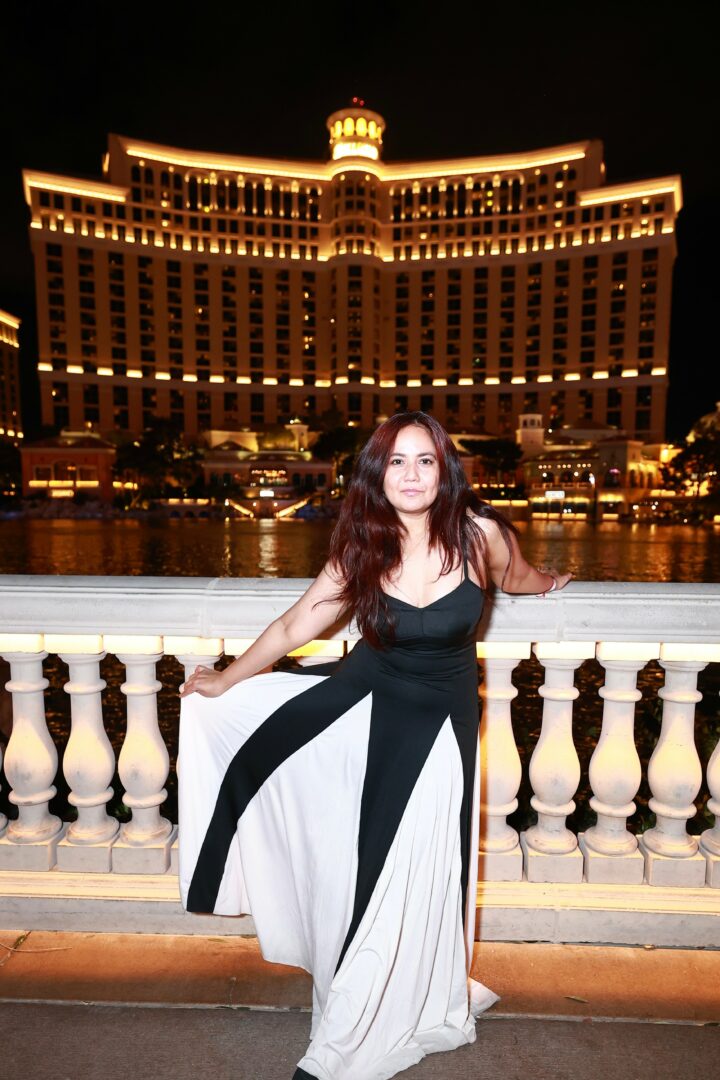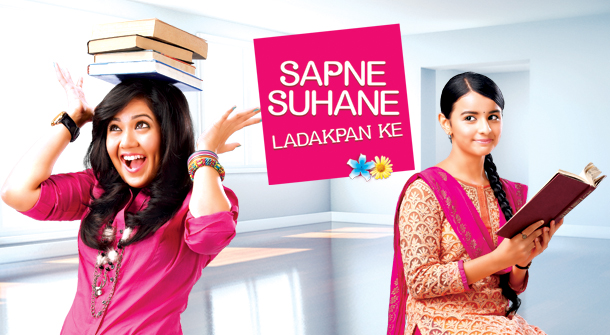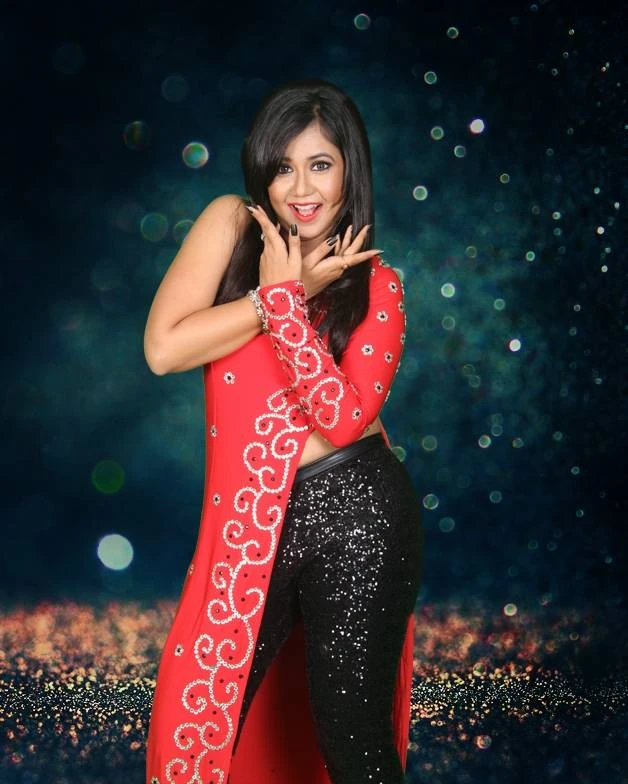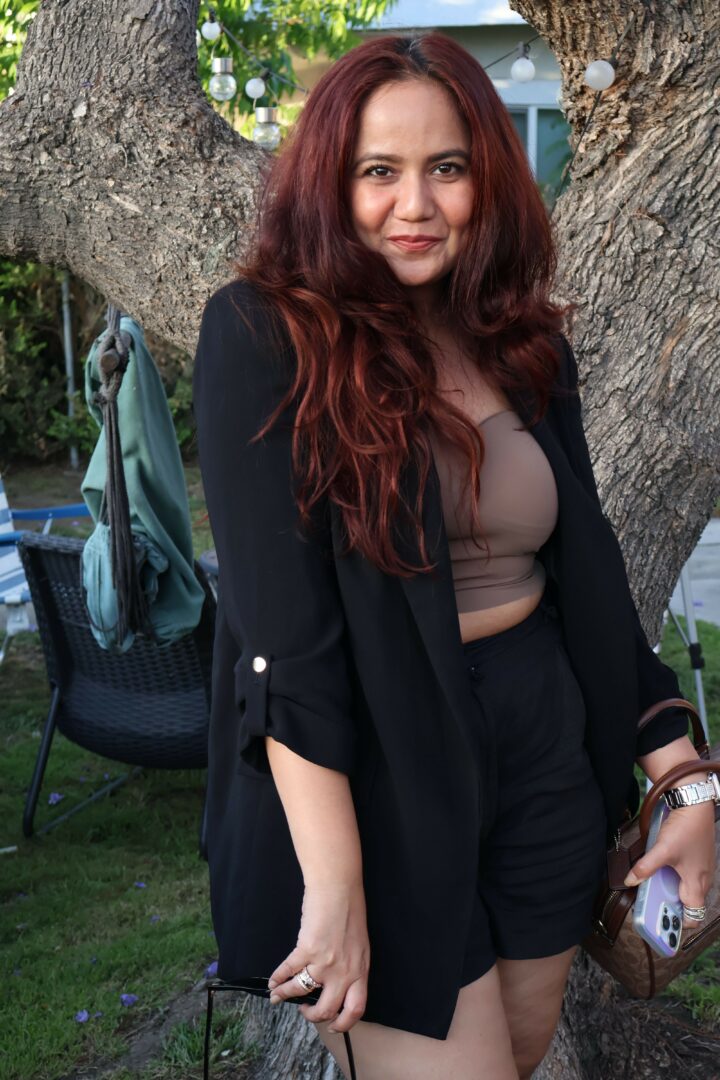We caught up with the brilliant and insightful Roopal Tyagi a few weeks ago and have shared our conversation below.
Hi Roopal, so happy to have you on the platform and I think our readers are in for a treat because you’ve got such an interesting story and so much insight and wisdom. So, let’s start with a topic that is relevant to everyone, regardless of industry etc. What do you do for self-care and how has it impacted you?
My self-care routine involves meditation. Nothing extraordinary—but it makes my life a million times better each day, every day.
One simple change that meditation brought into my life is clarity. It’s helped me see things in a much more organized and simpler way. That might sound basic, but having that kind of clarity makes a huge difference—whether I’m deciding on everyday tasks or making big life choices.
Before I started meditating, everything felt like a blur. I’d often feel confused, unsure of what to do or what not to do, and that led to anxiety and a lot of self-doubt. But this one simple practice has brought so much mental clarity that it simplifies even the smallest daily tasks, adds effectiveness to everything I do, and makes life as a whole feel lighter, more joyful, and easier to navigate.

Great, so let’s take a few minutes and cover your story. What should folks know about you and what you do?
Well, basically, I’m an actor from India, and I’ve done a lot of television shows back home—both fiction and non-fiction. I think that’s very exciting because when I’m on a fiction show, I’m portraying a different character, and whether the audience accepts that or not depends entirely on how the character is written. Thankfully, I’ve had the chance to play some fantastic characters on screen—from a wrestler to a simple college girl who’s suddenly thrown into a situation that’s completely alien to her.
Back in India, there’s a huge difference between a city upbringing and a small-town upbringing. One of my most popular characters, Gunjan, had to adapt to a new environment, and her resilience, willpower, and strength really resonated with a lot of young girls at the time. I feel very lucky to have played such layered and fun characters.
That’s about fiction. When it comes to non-fiction, I’ve had a blast just being myself on camera. I was part of a show called Bigg Boss, which is like the Indian version of Big Brother, and I think that was a great test of my own mental strength. It was an extremely challenging situation to be in.
I’ve also done dance reality shows, which felt like coming full circle because I actually started my career as a choreographer. So going back on stage and performing again was fantastic.
Overall, the journey so far has been a lot of fun and creatively very satisfying. Being on a daily soap almost feels like home now. That’s what we call TV shows back in India—daily soaps—because we shoot regularly, sometimes almost 360 days a year if you’re the lead. Like the name suggests, they air daily, so you have to shoot every day. It’s quite intense. There are no weekends off, no breaks—we just work constantly.
Maintaining the separation between the character and yourself can be hard; those lines often get blurred. But it also keeps you on your toes. You have to fully become the character to portray them day after day, even when you’re tired, unwell, or emotionally drained. And you can only do that if you really know your character inside out—if they’re deep within you, almost under your skin. So yes, it’s been a fun and intense ride.

If you had to pick three qualities that are most important to develop, which three would you say matter most?
Looking back at my journey—not just at the things I’ve done right, but also at the mistakes I’ve made—I’ve realized one very important thing: in life, it’s absolutely essential to have some degree of control over your own mind.
Unfortunately, most of us go through life on autopilot. Things happen, and we just react to them. But the only way to succeed consciously—not by accident or fluke—is by becoming fully aware of what’s happening around us, and learning to respond to situations rather than just reacting. And that’s only possible when you have some control over your monkey mind.
So if I had to name the number one quality that’s helped me, it would be mental discipline—some form of control over your thoughts and reactions. It’s incredibly important.
The second quality I believe is essential, especially for anyone in the creative field, is patience. In fact, it ties directly into mental control. You have to come to terms with the fact that if you want to do meaningful work, you need to be patient. Without it, frustration sets in too quickly. You start feeling creatively blocked, demotivated, and emotionally drained. A calm, patient mind is much more creative and resilient.
And third, to stay grounded and protect your sanity, it’s crucial to have a strong support system—a circle of people who are real with you, who truly care. It doesn’t have to be a large group. Just two or three people who know you deeply, who will be honest with you, and who will help you stay centered. For me, it could be my guru, my teacher, my best friend, or my family. It doesn’t matter who it is, as long as you have a core group that keeps you anchored. That kind of support is vital for long-term success.
So my advice to anyone starting out as an actor—whether in the U.S., India, or anywhere else—is this: alongside your physical health, prioritize your mental well-being. Because creativity only thrives when both your body and mind are in sync.
This industry is a rollercoaster. There will be successes, and there will be failures. That pattern never really ends. One day, a project will take off, and the next, something might flop. It’s an emotionally intense space. And success can be as destabilizing as failure. When you’re flying high, it’s euphoric—but when things go wrong, there will be no shortage of voices reminding you that you failed.
That’s why I call it a magical—but dangerous—cocktail. Success and failure constantly weave in and out, and if you’re not mentally prepared, it can break you. The only way to manage it is to cultivate a calm mind, stay patient, and surround yourself with people who keep you real.

As we end our chat, is there a book you can leave people with that’s been meaningful to you and your development?
The one book I would absolutely recommend to anyone—not just people in the creative field, but really anyone—is Inner Engineering by Sadhguru. It’s a New York Times bestseller, and I’m not saying this just because he’s my guru and I’ve learned a lot from him. In fact, I’ve been a skeptic all my life. I’d never had a guru or spiritual teacher before this.
But being the kind of person who questions everything, I wanted to do my own research. So I started small. I told myself, “Let me just read this book and see how it goes.” And honestly, that was the beginning of my spiritual journey.
I’m not claiming to be perfect or enlightened—not at all. But reading this book was a powerful first step. It made me dig deeper within myself and start seeing certain truths—about myself and the world around me—in a much clearer way. And I truly believe that kind of inner depth is something everyone should experience at least once in their lifetime.
So yes, Inner Engineering is a book I wholeheartedly recommend. It’s insightful, grounding, and can open a door within you that you didn’t even know existed.
Contact Info:

Image Credits
None
so if you or someone you know deserves recognition please let us know here.




